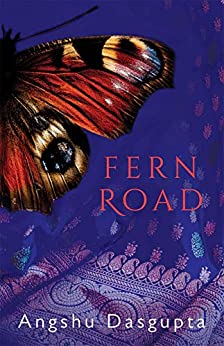Angshu Dasgupta’s Fern Road is far removed from the leafy promise of its title. It’s a tender tough novel which records the growing up years of Orko, a sensitive child, who has an extraordinary sense of empathy. Listening to the story of the Titanic, he finds himself plunging headlong into the ocean in his imagination, his lungs filling up with cold water, destined for death. He clings to his mother, wishes to be like her. When his mother finds him sobbing, repelled by the nakedness of men in the changing room of a swimming pool, a cry is torn from him ‘I want to be like you’. Of course, all little children whether boys or girls, want to be like their mothers. Yet, a sense of foreboding descends on us.
When he is just a young boy, he loses all the people who mean the world to him. First, it is the death of his mother with whom he identifies deeply. Next, his grandfather, who does not ask him the usual silly questions that adults do, instead listens to him, and takes his fears seriously, dies. Finally, there is a slow growing apart from his childhood friend Urmi, who had spent time with him, played with him, understood him, cared for him.

